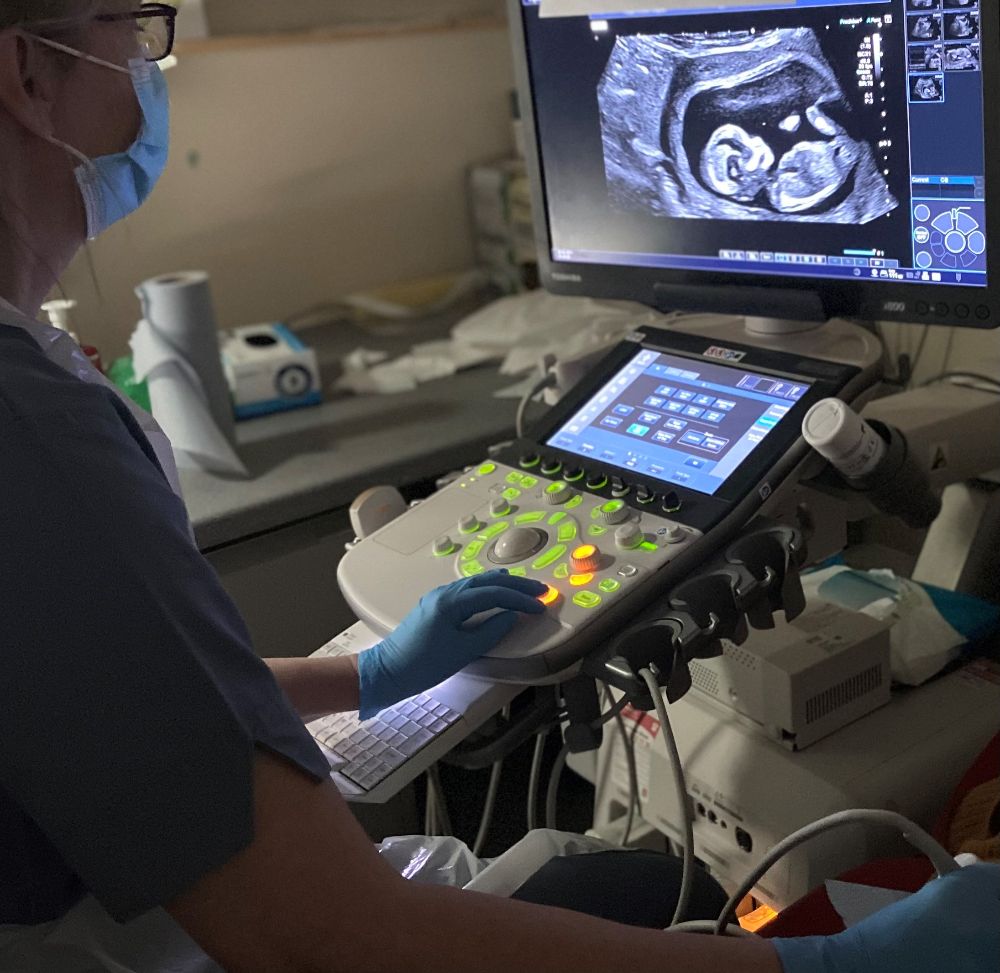Day Assessment Unit - 01633 234752 or 01633 234730
Birth Units - 01633 234009
This information is for you if you would like to know about your baby’s movements during pregnancy. It may be helpful if you are concerned that your baby has not been moving as much as usual or if you feel that your baby’s movements have changed.
Most women are first aware of their baby moving when they are 18–20 weeks pregnant. However, if this is your first pregnancy, you may not become aware of movements until you are more than 20 weeks pregnant. If you have been pregnant before, you may feel movements as early as 16 weeks. Pregnant women feel their baby’s movements as a kick, flutter, swish or roll.
As your baby grows, both the number and type of movements will change with your baby’s activity pattern. Usually, afternoon and evening periods are times of peak activity for your baby. During both day and night, your baby has sleep periods that mostly last between 20 and 40 minutes, and are rarely longer than 90 minutes. Your baby will usually not move during these sleep periods.
The number of movements tends to increase until 32 weeks of pregnancy and then stay about the same, although the type of movement may change as you get nearer to your due date. Often, if you are busy, you may not notice all of these movements. Importantly, you should continue to feel your baby move right up to the time you go into labour. Your baby should move during labour too.
During your pregnancy, feeling your baby move gives you reassurance of his or her wellbeing. If you notice your baby is moving less than usual or if you have noticed a change in the pattern of movements, it may sometimes be a sign that your baby is unwell and therefore it is essential that you contact your midwife or local maternity unit immediately so that your baby’s wellbeing can be assessed.
There is no specific number of movements that is considered normal. During your pregnancy, you need to be aware of your baby’s individual pattern of movements. A reduction or a change in your baby’s movements is what is important.
Certain drugs such as strong pain relief or sedatives can get into your baby’s circulation and make your baby move less. Alcohol and smoking may also affect your baby’s movements. In some cases, a baby may move less because he or she is unwell. Rarely, a condition affecting the muscles or nerves may cause your baby to move very little or not at all.
There is not enough evidence to recommend the routine use of a movement chart. It is more important for you to be aware of your baby’s individual pattern of movements throughout your pregnancy and you should seek immediate help if you feel that the movements are reduced or changed.
The care you will be given when you report a reduction or change in your baby’s movements depends on the stage of your pregnancy:


These investigations usually provide reassurance that all is well. Most women who experience one episode of reduction in their baby’s movements have a straightforward pregnancy and go on to have a healthy baby.
If there are any concerns for your baby, your healthcare team will discuss this with you. Follow-up scans may be arranged. In some circumstances, you may be advised that it would be safer for your baby to be born as soon as possible. This would depend on your individual situation and how far along you are in your pregnancy.
Please find below your local telephone numbers to telephone immediately if you have any concerns about your baby’s movements.
Day Assessment Unit - 01633 234752 or 01633 234730
Birth Units - 01633 234009
Day Assessment Unit – 01873 732139
Birth Units - 01873 732137
Birth Centre - 01443 802437
Birth Units - 01495 363309
Triage Unit - 01633 493530 or 01633 493621
When you go home you will be advised to keep an eye on your baby’s movements and, should your baby have another episode of reduced movements, you must again contact your midwife or local maternity unit immediately. You should never hesitate to contact your midwife or local maternity unit for advice, no matter how many times this happens.